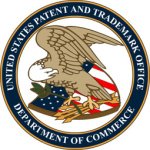- Industry: Legal services
- Number of terms: 3815
- Number of blossaries: 0
- Company Profile:
a transfer of ownership of a patent application or patent from one entity to another. Record all assignments with the USPTO Assignment Services Division to maintain clear title to pending patent applications and patents.
Industry:Legal services
a transfer of ownership of a trademark application or trademark registration from one entity to another. The USPTO recommends recording assignments with the USPTO Assignment Services Division to maintain clear title to pending trademark applications and registrations. For information on how to record an assignment, see Recordation Form Cover Sheet.
Industry:Legal services
a transitional phrase that is closed (only includes exactly what is stated) and excludes any element, step, or ingredient not specified in the claim.
Industry:Legal services
a USPTO employee who examines (reviews and determines compliance with the legal and regulatory requirements of) an application for registration of a federally registered trademark
Industry:Legal services
a provisional application for patent is a U. S. national application for patent filed in the USPTO under 35 U.S.C. § 111(b). It allows filing without a formal patent claim, oath or declaration, or any information disclosure (prior art) statement. It provides the means to establish an early effective filing date in a nonprovisional patent application filed under 35 U.S.C § 111(a) and automatically becomes abandoned after one year. It also allows the term "Patent Pending" to be applied.
Industry:Legal services
a real-world example of how the mark is actually used on goods or in the offer of services.
Labels, tags, or containers for goods are considered to be acceptable specimens of use for a trademark. For a service mark, specimens may be advertising such as magazine advertisements or brochures. Actual specimens, rather than facsimiles, are preferred. However, if the actual specimens are bulky, or larger than 8½" x 11", then the applicant must submit facsimiles, (e.g., photographs or good photocopies) of the specimens. Facsimiles may not exceed 8½" x 11". One specimen is required for each class of goods or services specified in the trademark application.
Industry:Legal services
a solemn declaration before another, complying with the laws of the state or country where made, that the document in which an applicant for patent declares that (1) he or she is the original or sole inventor, (2) shall state of what country he or she is a citizen, (3) that he or she has reviewed and understands the contents of the specification and claims which the declaration refers to, and (4) acknowledges the duty to disclose information that is material to patentability as defined by 37 CFR § 1.56. An oath or declaration must be filed in each nonprovisional patent application.
Industry:Legal services
a statutory basis (Trademark Act Section 2(d), 15 U.S.C. Section 1052(d), TMEP §1207 et seq.) for refusing registration of a trademark or service mark because it is likely to conflict with a mark or marks already registered or pendingbefore the USPTO. After an application is filed, the assigned examining attorney will search the USPTO records to determine if such a conflict exists between the mark in the application and another mark that is registered or pending before the USPTO. The USPTO will not conduct any preliminary searches for conflicting marks before an applicant files an application and cannot provide legal advice on whether a particular mark can be registered.
The principal factors considered by the examining attorney in determining whether there is a likelihood of confusion are: (1) the similarity of the marks; and (2) the commercial relationship between the goods and/or services listed in the application.
To find a conflict, the marks do not have to be identical, and the goods and/or services do not have to be the same. It may be enough that the marks are similar and the goods and/or services related. If a conflict exists between your mark and a registered mark, the examining attorney will refuse registration on the ground of likelihood of confusion. If a conflict exists between your mark and a mark in a pending application that was filed before your application, the examining attorney will notify you of the potential conflict and possibly suspend action on your application. If the earlier-filed application registers, the Examining Attorney will refuse registration of your mark on the ground of likelihood of confusion.
Industry:Legal services
a sworn statement, filed by the owner of a mark registered on the Principal Register, claiming “incontestable” rights in the mark for the goods/services specified. An “incontestable” registration is conclusive evidence of the validity of the registered mark, of the registration of the mark, of the owner’s ownership of the mark and of the owner’s exclusive right to use the mark with the goods/services.
Industry:Legal services
A system used within the USPTO to scan, store and provide access to images of papers associated with trademark registrations.
Industry:Legal services
